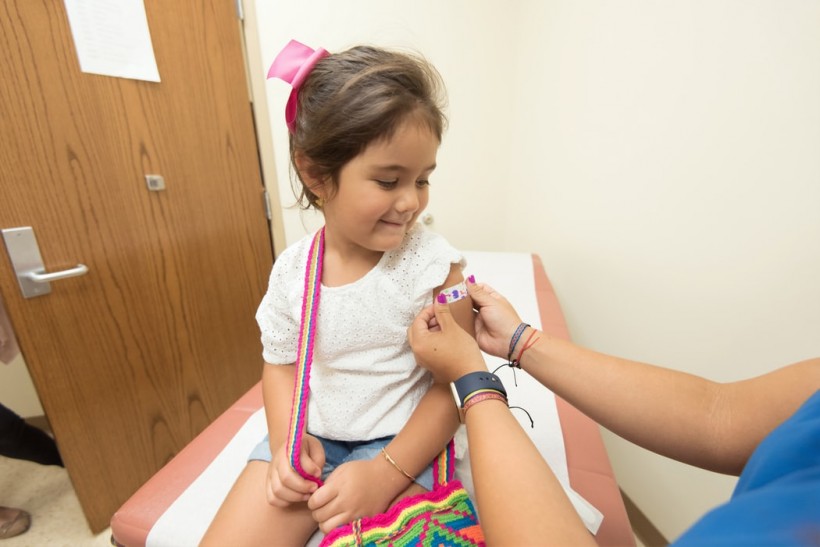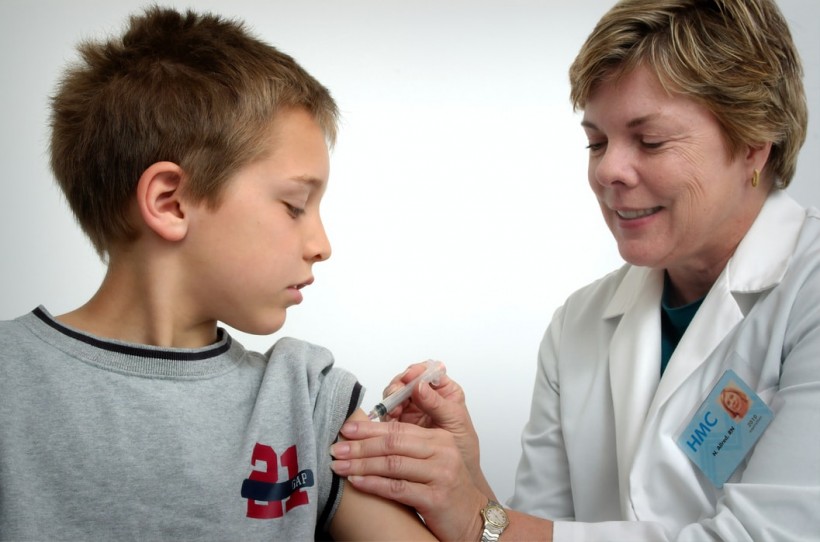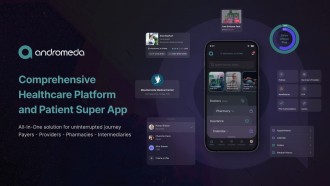The American Cancer Society (ACS) has revised its vaccination guideline for human papillomavirus (HPV).
According to an ACS report on July 8, children aged below 15 are recommended to have two HPV jabs starting as early as nine years old as they have weak immune systems. Also, the complete and updated guideline was published in CA: Cancer Journal for Clinicians on the same day.
The guideline also urged healthcare providers to regularly offer the HPV vaccine series to 9 to 12-year-old kids. In contrast, those who only get the first shot at 15 and older should get three rounds of vaccines to lower their risks of getting HPV-related cancers.

In this 2017 photo, captured inside a clinical setting, a health care provider was placing a bandage on the injection site of a child, who had just received a seasonal influenza vaccine. Children younger than 5-years-old, and especially those younger than 2-years-old, are at high risk of developing serious flu-related complications. A flu vaccine offers the best defense against flu, and its potentially serious consequences, and can also reduce the spread of flu to others.
According to the Medical Daily, the new guideline updated the earlier advice provided by the Center for Disease Control and Prevention (CDC) Advisory Committee on Immunization Practices (ACIP) in 2007 recommending HPV jabs to be given to children aged 11 to 12. The ACIP is part of the CDC and the primary source of US immunization policies.
ACS managing director of HPV and gynecological cancers Debbie Saslow said that the HPV vaccination's efficacy is at the highest in early adolescence, but it "decreases dramatically by age 18."
While adults between 22 and 26 years old should still receive vaccines, the protection is no longer the same as it does for teens and children. The ACS guideline also advised healthcare providers to offer "catch-up" HPV vaccination up to age 26 while those beyond 26 are no longer advised to get the vaccine. Saslow explained that the vaccine will no longer protect them against many cancers.
However, ACIP refuted Saslow's claim and stated that adults between 27 and 45 years old may still take the vaccination by consulting healthcare providers.
Meanwhile, Saslow seemed optimistic about the possibility of eliminating cervical cancer by improving vaccination rates, screening, and treatment of early stages of cancers in the cervix. "We have the potential to make history by eliminating cervical cancer," Saslow exclaimed.

The nurse depicted in this 2006 photograph was in the process of administering an intramuscular vaccination in the left shoulder of a young boy. The nurse was pinching the overlying shoulder skin, in order to immobilize the injection site.
The guideline updates follow after the ACS's Guideline Development Group's (GDG) review and adaptation of the 2019 ACIP update.
HPV vaccination: Why we should get it?
According to the CDC, about 12,000 women are diagnosed to have cervical cancer every year.
People who did not get the HPV vaccination are at higher risk of acquiring the virus throughout their lives, although most of them will never know they have it. While most of the infection does not cause any health concerns and usually ceases on its own, some HPV cases stay inside the person's body.
Some types of infection cause genital warts, but others can cause cancer. However, giving the vaccines to children and teens prevents these types of HPV. Young women are protected from cancers of the cervix, vagina, vulva, anus, and throat while boys are shielded from penis, anus, and throat cancers.
"Starting vaccinations at a younger age gives more opportunities for a child to complete the series," said Saslow adding that these children are likely to have a stronger immune response against HPV.









